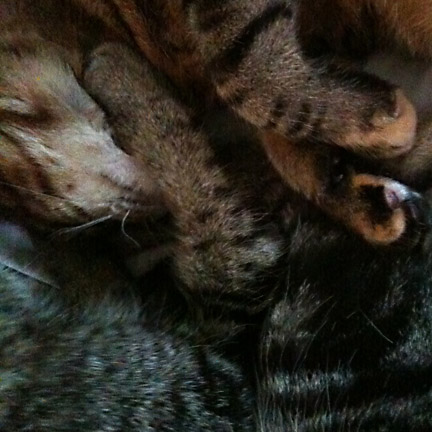I listened to this story “Keeping Your Kids Safe Online: It’s ‘Common Sense'” on NPR’s Fresh Air tonight on the way home. I thought of all the discussions I’d had with parents looking for the perfect software that was going to keep their children from seeing anything bad on the internet. I remembered all the disbelieving looks from mothers when I told them that determined kids, even good kids, would find ways around parental controls and home computers to explore the internet on their own terms.
So I was listening to this piece and nodding at the emerging notion of “right to be forgotten” – that one’s foibles, recklessly sown on the digital world, should be searchable and erasable. Just like it’s possible to search for and find matching images and words on the web.
I nodded about the notion that one should have to opt in to things that reduce your privacy on the web, not opt out of them.
And then it got to this part:
Kids younger than 13 are protected under the Children’s Online Protection Act (COPA), which was written in 1998. The law was designed to protect the identity of kids, but that doesn’t necessarily mean it translates to the present-day, says Steyer.
“It was the stone ages of digital media,” he says. “YouTube, Facebook, Google, Twitter — none of those services existed. So we have an antiquated structure to deal with these privacy issues.”
And kids under 13 are increasingly lying about their age to get on these sites, he says.
“Consumer Reports reported last year that there are at least 7.5 million kids under the age of 13 on Facebook in the United States,” he says. “So the COPA laws are designed to protect the identity of kids 12 and under, but they are riddled with holes that are easily gone through. Millions of kids now just fake their age and go on Facebook and other platforms.”
He only had to say the words “Children’s Online Protection Act” and I was already flashing back to being at work in Williamstown and listening to the discussion about COPA and what it would mean and how would we implement it. And I thought about all the things I saw while looking at our member’s web pages. Who knew just how much you couldn’t un-see what you saw, LOL?
My policy online has been to never say anything that was private about myself and never to say anything I wouldn’t want my mother to hear. That’s served me pretty well all these years. I’m guilty of a few rants. I have my moments. I’m more interested in making the world a more connected place, to share information, to share what I do with interested viewers than to blab all the nitty-gritty about my life. I’m sure you have enough of your own nitty-gritty to deal with.
And parents: the only parental control that matters, even after all these years of technological development, is you. Being nearby when your kids are online, ready to have the discussion about the tantalizing ads and the sexy verbage. Being willing and then actively and openly overseeing your kids’ emails and whatever else they do on the web.
There’s no room for secrets. You must know more than they do and continue to learn. Just like you know how to do other things that they can’t do on their own yet. No excuses from you. You’re the grown up and you are in charge.


